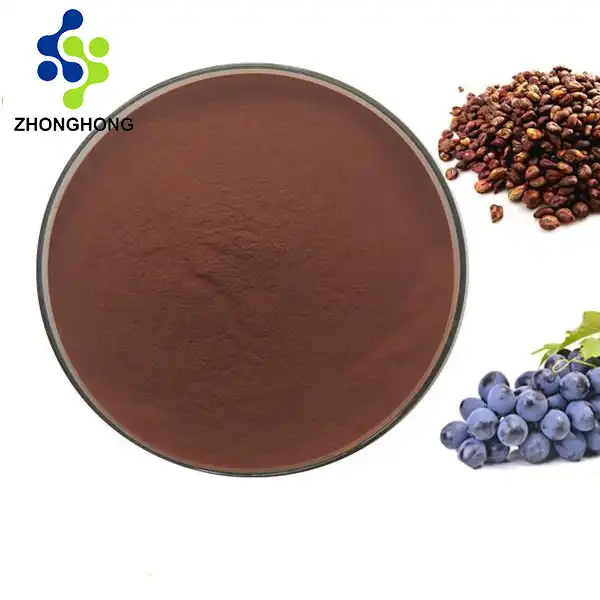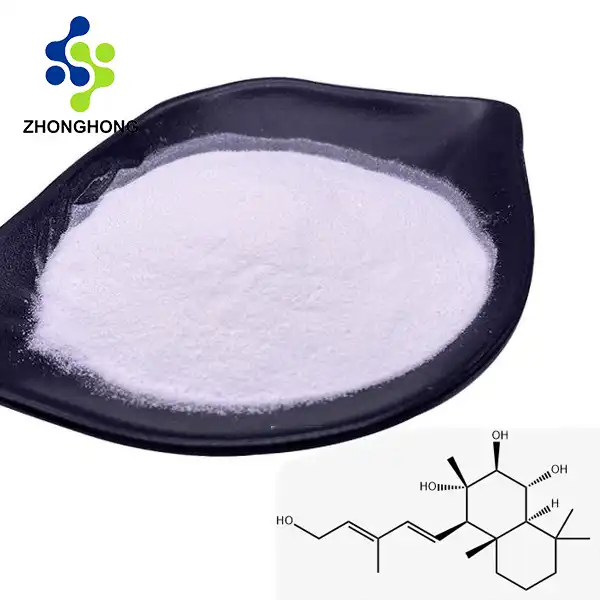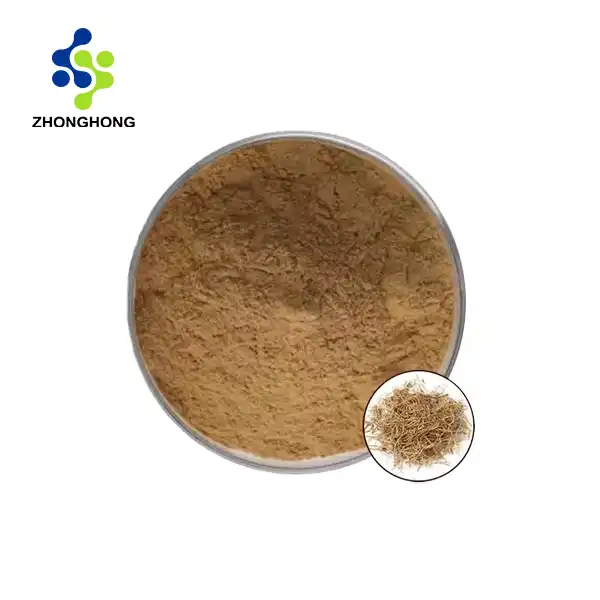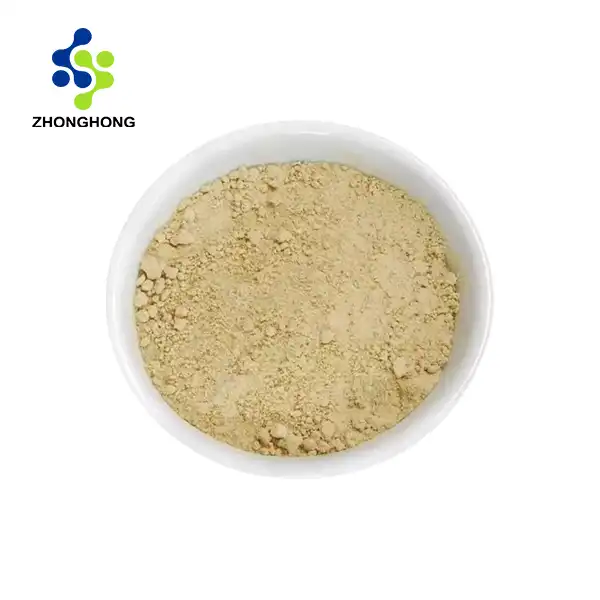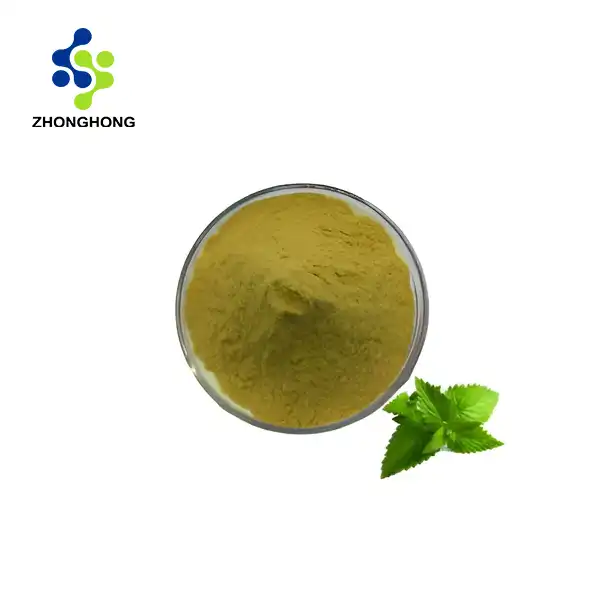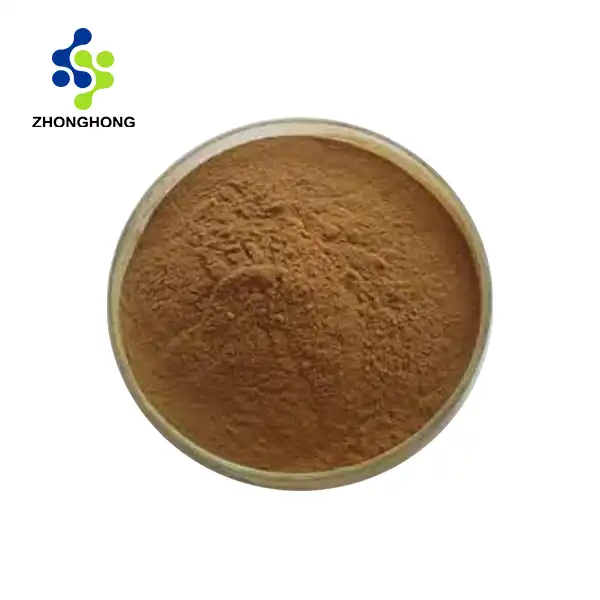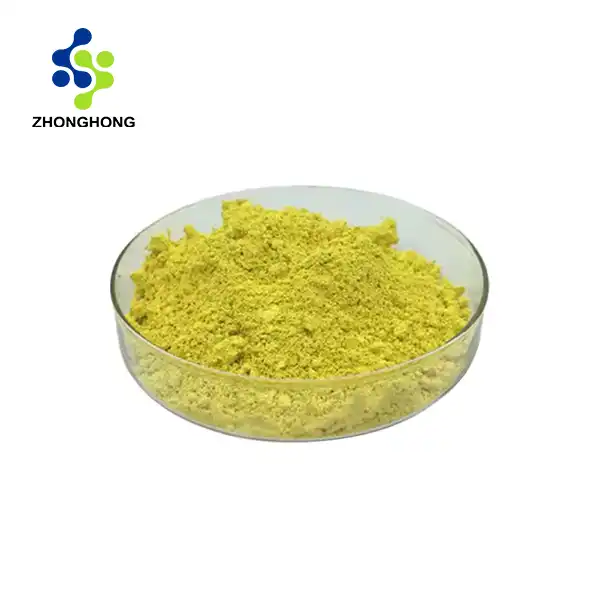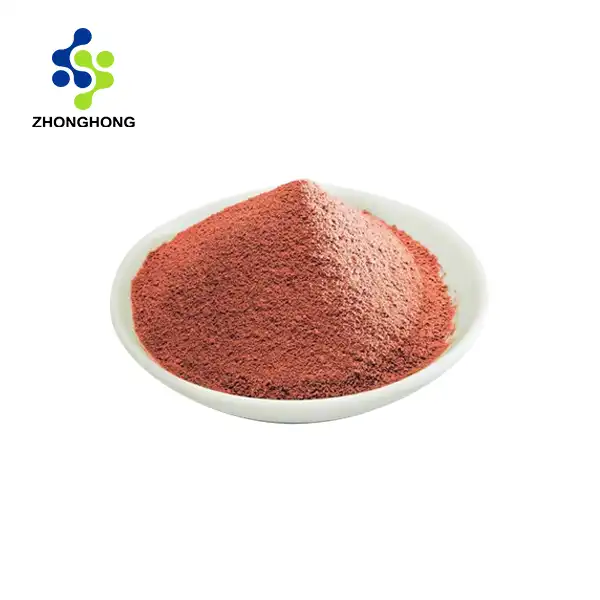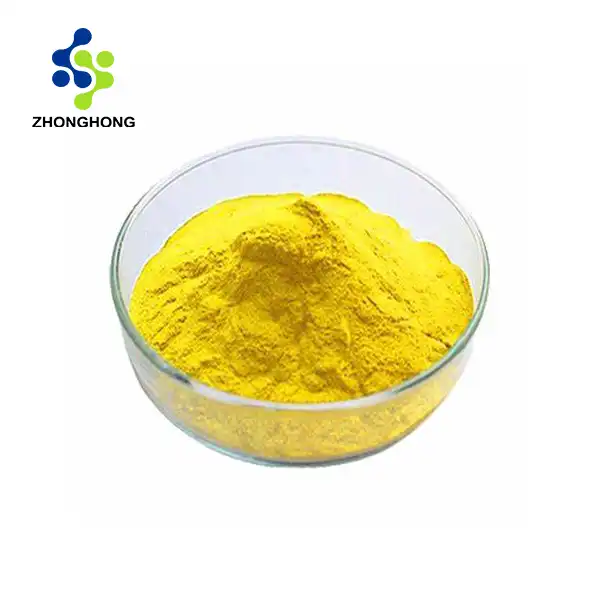1.Grape seed extract Introduction
Shaanxi Zhonghongtou Technology Co., Ltd. stands as a leading high-tech enterprise that combines agile R&D, joint innovation, integrated manufacturing, and global marketing prowess. Specializing in the realms of chemistry, materials, and life sciences, our core focus lies in the extraction, separation, purification, and market application of plant active ingredients. We source top-notch raw materials from around the world and our R&D efforts have led to a diverse portfolio covering natural plant extracts, cosmetic raw materials, healthcare and pharmaceutical ingredients, natural plant pigments, and natural plant sweeteners, all adhering to strict standards of quality.
Our company has established a formidable scientific research foundation. By collaborating with five prestigious universities to build joint laboratories, we have amassed over 20 patented technologies and possess a globally exclusive compound library. This academic-industry synergy fuels our continuous innovation and keeps us at the forefront of the industry.
Equipped with state-of-the-art facilities such as high-performance liquid chromatography and superconducting nuclear magnetic resonance spectrometers, our international cutting-edge detection systems ensure that the purity of our products exceeds industry standards by a remarkable 20%. This precision in quality control not only sets us apart but also guarantees the efficacy and safety of our offerings.
With a far-reaching global network spanning over 30 countries across Asia, Europe, and America, we are uniquely positioned to provide bespoke raw material solutions to multinational pharmaceutical companies and renowned scientific research institutions.
2. Grape Seed Extract: A Premier Product Offering
Grape seed extract, one of our star products, is derived from the seeds of grapes, a natural source rich in potent antioxidants. The chemical composition of grape seed extract is complex and powerful, containing compounds like proanthocyanidins, which are renowned for their numerous health benefits.
3. Product Characteristics
High Antioxidant Capacity: The proanthocyanidins in grape seed extract scavenge free radicals more effectively than many other natural substances, protecting cells from oxidative damage.
Versatile Compatibility: It can be easily incorporated into various formulations, whether in cosmetics, pharmaceuticals, or dietary supplements.
Stability: Under proper storage conditions, it maintains its potency and chemical integrity over an extended period.
4. Specifications and Parameters
| Project | Standard | Detection Method |
|---|---|---|
| Purity | ≥ 95% | HPLC (High-Performance Liquid Chromatography) |
5. Usage Scenarios
Cosmetics Industry: Added to anti-aging creams, serums, and lotions to promote skin elasticity, reduce wrinkles, and protect against UV damage. The antioxidants help neutralize free radicals generated by environmental stressors, keeping skin youthful and vibrant.
Pharmaceutical Field: Utilized in medications and dietary supplements aimed at improving cardiovascular health. Studies suggest it may help lower blood pressure, reduce cholesterol levels, and enhance blood circulation by strengthening capillary walls.
Food and Beverage Sector: Incorporated into functional foods, juices, and teas as a natural antioxidant booster. Consumers seeking a healthy lifestyle can benefit from the added protection against oxidative stress with every sip or bite.
6. Extraction Methods
We employ a combination of advanced techniques, starting with a gentle mechanical extraction to separate the seeds from the grape pulp. Subsequently, a solvent extraction process, using food-grade solvents, is carefully calibrated to isolate the valuable compounds. The extract then undergoes multiple purification steps, including membrane filtration and chromatography, to ensure the highest quality and purity.
7. Physiological Efficacy on Different Populations
For Adults: Regular consumption of grape seed extract can enhance overall immunity, combat fatigue, and support healthy vision. The antioxidants help repair cellular damage caused by daily stressors, keeping the body in optimal condition.
For the Elderly: It plays a crucial role in maintaining cardiovascular health, reducing the risk of age-related diseases such as heart attacks and strokes. Additionally, it may alleviate joint pain and inflammation, improving mobility and quality of life.
For Athletes: The extract aids in muscle recovery post-exercise, reducing muscle soreness and inflammation. It also helps improve endurance by enhancing oxygen uptake and utilization in the body.
8. Product Details and Benefits to Health
Material: Sourced from carefully selected grape varieties known for their high phenolic content. These grapes are grown in ideal climates and soil conditions to maximize the potency of the seeds.
Description: A fine powder or liquid extract, depending on the formulation, with a characteristic color and aroma. It is a concentrated source of bioactive compounds that have been scientifically proven to offer a myriad of health benefits.
Health Benefits: Beyond the antioxidant and cardiovascular benefits mentioned earlier, it has also been shown to have anti-inflammatory properties, beneficial for conditions like arthritis and allergies. It may also support brain health, improving cognitive function and memory.
9. Usage Instructions
Dosage: For general health maintenance, a recommended daily dosage of [X] mg is suggested. However, for specific therapeutic applications, consult a healthcare professional.
Administration: In the form of capsules or tablets for oral consumption, or it can be added to topical formulations for skin application. When used in food or beverages, follow the recipe or product instructions carefully.
10. Precautions
People allergic to grapes should avoid using grape seed extract.
Pregnant and lactating women should seek medical advice before incorporating it into their routine.
Store in a cool, dry place, protected from light, to preserve its efficacy.
11. Production Process (Accompanied by Pictures)
[Insert detailed, step-by-step pictures of the production process here, from grape harvesting to the final packaged product. Highlight key equipment, quality control checkpoints, and the cleanroom environment if applicable.]
12. Quality Control
Our quality management system is ISO-certified and adheres to the strictest international norms. Every batch of grape seed extract undergoes rigorous testing at multiple stages, from raw material inspection to final product analysis. Only products that meet or exceed our stringent quality benchmarks are released to the market.
13. Use Tutorials
For Cosmetics: When adding grape seed extract to homemade creams or lotions, dissolve it in a small amount of carrier oil first, then mix thoroughly. Follow the recommended concentration guidelines to ensure optimal results.
For Dietary Supplements: Take capsules with a glass of water, preferably at the same time each day to maintain consistent levels in the body.
For Food Applications: Sprinkle the powdered extract onto yogurt, oatmeal, or blend it into smoothies for an antioxidant boost.
14. Customer Feedback
[Insert real testimonials from customers who have used our grape seed extract. Highlight success stories like improved skin complexion, reduced cholesterol levels, or enhanced athletic performance.]
15. Packaging and Shipping
Packaging: We use airtight, light-resistant containers, usually made of high-quality plastic or glass, to protect the extract from moisture, light, and air. Each package is clearly labeled with product details, dosage instructions, and expiration date.
Shipping: Partnered with global logistics leaders, we ensure that your orders are shipped promptly and arrive in pristine condition. Whether it's a small sample or a bulk shipment, we handle it with care.
16. Samples
We offer free samples of our grape seed extract to potential customers, allowing them to test the product's quality, texture, and efficacy before making a purchase decision. Simply contact our customer service team to request your sample.
17. After-sales Service
Our dedicated after-sales support team is available around the clock to answer any questions or resolve any issues you may encounter. Whether it's about product usage, storage, or quality concerns, we're here to help.
18. General Information
Qualifications: Hold multiple industry certifications, including GMP (Good Manufacturing Practice) for pharmaceuticals and ISO 9001 for quality management.
Accreditations: Recognized by international regulatory bodies for our commitment to safety and quality in the production of plant extracts.
19. FAQ
Q: How long does it take to see results when using grape seed extract for skin improvement?
A: Typically, with regular use, visible improvements in skin texture and appearance can be noticed within 4-6 weeks.
Q: Can I mix grape seed extract with other supplements?
A: In general, it is safe to combine with most common supplements. However, it's always best to consult a healthcare professional, especially if you have underlying health conditions.
20.References:
European Pharmacopoeia Standards.
USDA Organic Certification Guidelines.
Peer-reviewed studies on OPC efficacy (e.g., Journal of Agricultural and Food Chemistry).
_1728976869676.webp)
